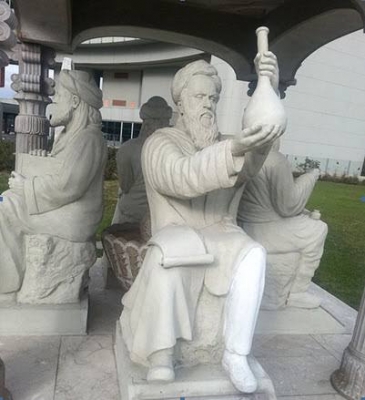
Abu Bakr al Razi was born in AD 865 in Rey, a city near Tehran. He was a contemporary of Ibn Sina and an outstanding scholar, researcher and physician.
Due to his service as chief physician at a hospital in Baghdad he was exposed to a large number of cases which helped him to gain practical knowledge and refine his treatment methods. He based his practice on observation and experimentation and wrote two important medical books; Kitab al-Mansuri and Kitab al-Hawi. Both these books became extremely popular as medical texts in European universities. Razi practised evidence-based treatment and did not hesitate to criticize such established names as Galen when he found inconsistencies in their theories.
He also wrote a treatise on smallpox and measles and made a distinction between these two diseases for the first time. He is credited with being the first doctor to write a home manual for the treatment of common illnesses, like headaches and colds for use when a physician was unavailable. He also wrote the first book on Paediatrics called The Diseases of Children. Until then, children and adults were treated alike. For this reason Razi is also called the ‘Father of Paediatrics’. Besides all this, he also wrote extensively about philosophy, logic, astronomy, mathematics, physics and music. He was undoubtedly one of the most illustrious figures in the history of medicine.
Picture Credit : Google




